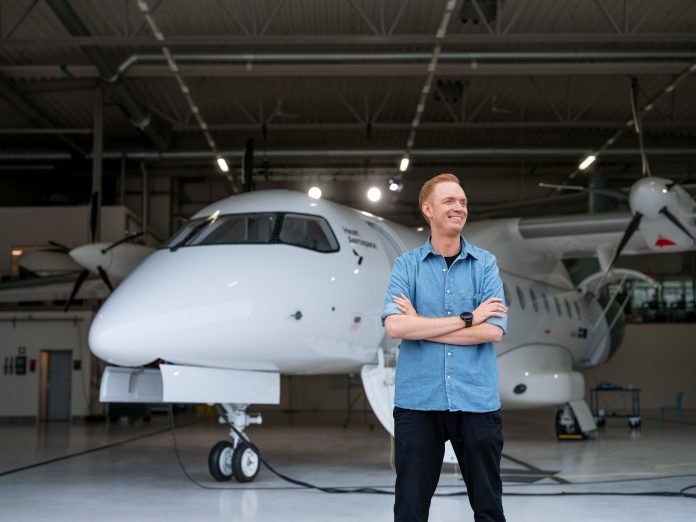Anders Forslund calls for urgent government support to fast-track hybrid-electric flight and keep Europe in the global race to net-zero aviation.
| NewsAvia Middle East Edition
The race to net-zero in aviation is not just a future ambition—it’s a present-day imperative, says Anders Forslund, Co-founder and CEO of Heart Aerospace, a pioneer in clean regional flight technologies. Speaking ahead of the Clean Aviation Annual Forum 2025, Forslund issued a strong message to governments: “Without bold public investment, the breakthrough technologies required to decarbonize air travel by 2050 will be delayed beyond reach.”
At the heart of Heart Aerospace’s vision is the ES-30, a 30-seat hybrid-electric aircraft designed to serve regional routes and set to enter service by the end of the decade. The aircraft represents a concrete step forward in aviation’s sustainability journey, but Forslund warns that technology alone won’t get the industry across the finish line.
Electrification: The Next Leap for Regional Aviation
While Sustainable Aviation Fuels (SAF) are often at the center of decarbonization discussions, Forslund highlights that hybrid-electric propulsion must play a parallel and accelerated role, especially in short-haul and regional markets. “Fleet renewal and fuel efficiency gains in conventional aircraft have stagnated,” he said. “The regional sector is where we can act now, and electrification offers the fastest route to tangible emissions cuts.”
According to Forslund, hybrid-electric aircraft like the ES-30 can dramatically reduce emissions on routes under 500 kilometers, many of which are underserved or constrained due to environmental concerns.
A Call for Government Action and Policy Alignment
Forslund’s remarks come in the wake of the DESTINATION 2050 report, which estimates that €2.4 trillionwill be needed to decarbonize European aviation, with a significant portion directed toward new aircraft technologies. While private investment in clean aviation is growing, Forslund insists that public funding is essential to de-risk early-stage development, particularly in areas like battery technology, certification, and ground infrastructure.
He also calls on EU policymakers to revisit state aid rules: “If Europe wants to remain competitive with the U.S. and China—regions that actively support clean tech through public funding—aviation cannot remain an exception.”
Three Key Actions for Policymakers
Forslund outlines a clear action plan to accelerate progress:
- Boost public R&D funding for hybrid-electric aircraft, batteries, and charging infrastructure.
- Develop a dedicated Aviation Industrial Strategy to align clean aviation with the broader Clean Industrial Deal.
- Fast-track certification of novel propulsion technologies by harmonizing regulations and lowering market entry barriers.
Forslund’s message resonates strongly with GCC nations, particularly the UAE and Saudi Arabia, which are investing in sustainable mobility and urban air infrastructure. As regional carriers consider future fleets and local manufacturers begin eyeing clean tech opportunities, hybrid-electric solutions offer a viable path to reducing emissions while maintaining connectivity.
With their ambitious net-zero strategies and access to capital, GCC countries are uniquely positioned to become early adopters or even co-developers of such technologies—provided the right frameworks and partnerships are in place.
The Moment for Leadership
“The technologies exist. The market is ready. The urgency is undeniable,” Forslund emphasized. “Now is the time for governments to act—2050 is not a vision, it’s a commitment. We must start delivering today.”
Leader Profile
Anders Forslund is the Co-founder and CEO of Heart Aerospace, a Swedish aerospace company focused on developing hybrid-electric aircraft for regional travel. A vocal advocate for clean aviation, Forslund combines engineering expertise with policy engagement to push the aviation sector toward sustainable transformation.

